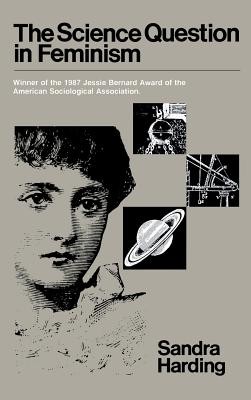
- We will send in 10–14 business days.
- Author: Sandra Harding
- Publisher: Cornell University Press
- Year: 1986
- ISBN-10: 0801418801
- ISBN-13: 9780801418808
- Format: 15.2 x 22.9 x 1.9 cm, kieti viršeliai
- Language: English
- SAVE -10% with code: EXTRA
Reviews
Description
Can science, steeped in Western, masculine, bourgeois endeavors, nevertheless be used for emancipatory ends? In this major contribution to the debate over the role gender plays in the scientific enterprise, Sandra Harding pursues that question, challenging the intellectual and social foundations of scientific thought.Harding provides the first comprehensive and critical survey of the feminist science critiques, and examines inquiries into the androcentricism that has endured since the birth of modern science. Harding critiques three epistemological approaches: feminist empiricism, which identifies only bad science as the problem; the feminist standpoint, which holds that women's social experience provides a unique starting point for discovering masculine bias in science; and feminist postmodernism, which disputes the most basic scientific assumptions. She points out the tensions among these stances and the inadequate concepts that inform their analyses, yet maintains that the critical discourse they foster is vital to the quest for a science informed by emancipatory morals and politics.
EXTRA 10 % discount with code: EXTRA
The promotion ends in 23d.04:04:18
The discount code is valid when purchasing from 10 €. Discounts do not stack.
- Author: Sandra Harding
- Publisher: Cornell University Press
- Year: 1986
- ISBN-10: 0801418801
- ISBN-13: 9780801418808
- Format: 15.2 x 22.9 x 1.9 cm, kieti viršeliai
- Language: English English
Can science, steeped in Western, masculine, bourgeois endeavors, nevertheless be used for emancipatory ends? In this major contribution to the debate over the role gender plays in the scientific enterprise, Sandra Harding pursues that question, challenging the intellectual and social foundations of scientific thought.Harding provides the first comprehensive and critical survey of the feminist science critiques, and examines inquiries into the androcentricism that has endured since the birth of modern science. Harding critiques three epistemological approaches: feminist empiricism, which identifies only bad science as the problem; the feminist standpoint, which holds that women's social experience provides a unique starting point for discovering masculine bias in science; and feminist postmodernism, which disputes the most basic scientific assumptions. She points out the tensions among these stances and the inadequate concepts that inform their analyses, yet maintains that the critical discourse they foster is vital to the quest for a science informed by emancipatory morals and politics.


Reviews